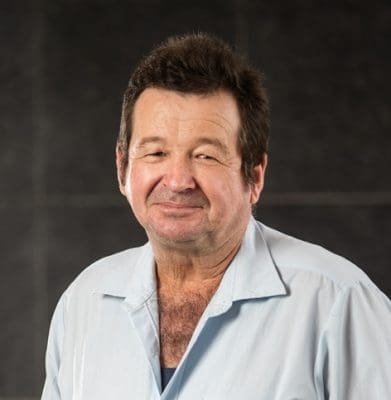Making change for the better in the beef industry is a long road and one that requires commitment and patience. This is particularly the case when it comes to major Government policy announcements like the new Agricultural Worker Visa.
This visa will have a big impact on Australia’s capacity to boost productivity and profitability right across the agricultural sector, including our northern beef industry. While many in the beef industry run a year-round operation, producers in the wet-dry tropics and rangelands run largely seasonal operations due to the extreme variables of rainfall, temperature, and humidity. When it comes time to gear up, backpacker and indigenous labour is vital right along the supply chain.
The upcoming UK free trade agreement will do away with a requirement for British backpackers to undertake rural work if they want to extend their stay. Even though this has been a key source of overseas workers, it’s never given us all the people and the skills we need. Designed to build on the highly successful existing Pacific schemes, the new Agriculture Worker Visa is a game-changer. Even though we won’t be able to depend on British backpackers, the transition to this new model will potentially see even more people coming to Australia to take up a job specific to agriculture – and more staff committed to agricultural employment will help us boost productivity.
Australia needs to build long term relationships with our major trading partners if we are to develop a prosperous export-orientated economy. Historically, the agricultural economy in Australia was based too heavily on producing commodities that were often sold and marketed by government-backed boards or authorities. This is no longer the case and farmers today understand the need to look beyond the farm gate to develop new markets or what is needed simply to maintain market share in a very competitive global trading environment.
The new visa is a big political victory and one that could not be fought alone. The National Farmers’ Federation has been flying the flag on this issue for years with support from its industry commodity and State Farm Organisation members. This success is a result of NFF doing what only NFF can do – mobilising the power of the entire agricultural sector. This is why we have NFF, and why it will continue to play a vital role in Australian agricultural policy for generations to come.
Another important part of this is having a minister prepared to make the change and address the structural problems. David Littleproud has established himself as an operator that gets the job done. This is not always easy when you’re in the junior party of a Coalition Government. Minister Littleproud’s support has been key to keeping this issue on the agenda.
The agriculture visa also demonstrates a long-game plan, with the knowledge and patience that is required to achieve a positive result for our industry. This is how most agricultural bodies including Cattle Council operate. Policy development and advocacy are often thankless and unrewarding tasks that are not given the recognition they deserve.
When we do kick a goal, such as getting the new visa into legislation, it is the result of years of hard work, employing dedicated staff and the contributions of producers that volunteer their time to build a better industry.
The recently announced UK Free Trade Agreement has also been the result of years of ongoing work by NFF and key Peak Industry Councils such as Cattle Council to free up trading conditions for red meat into high-value export markets. A free trade agreement always makes a good headline, but it involves a lot of specific detail and technical barriers to work through before that can be translated to Australian beef in overseas supermarkets and restaurants.
A more recent focus for Cattle Council is climate. We’ve had a target put on our back, and we’re doing our bit to cut emissions to the point that we are striving to not only be net-zero by 2030 but also become part of the solution to Australia’s broader climate challenges. Cattle Council is playing the long game by pushing for a more accurate way to measure our carbon footprint. We recycle carbon and most of our emissions are short-lived and not new to the atmosphere, which is why we want this recognised in a new carbon accounting metric like GWP*.
I’m proud to be one of 50,000 cattle producers that together generate an $18 billion dollar industry. We have an industry where our producers can just do what they do best – produce the world’s best beef while they have talented and dedicated people in their representative bodies to tackle the big-picture issues.

